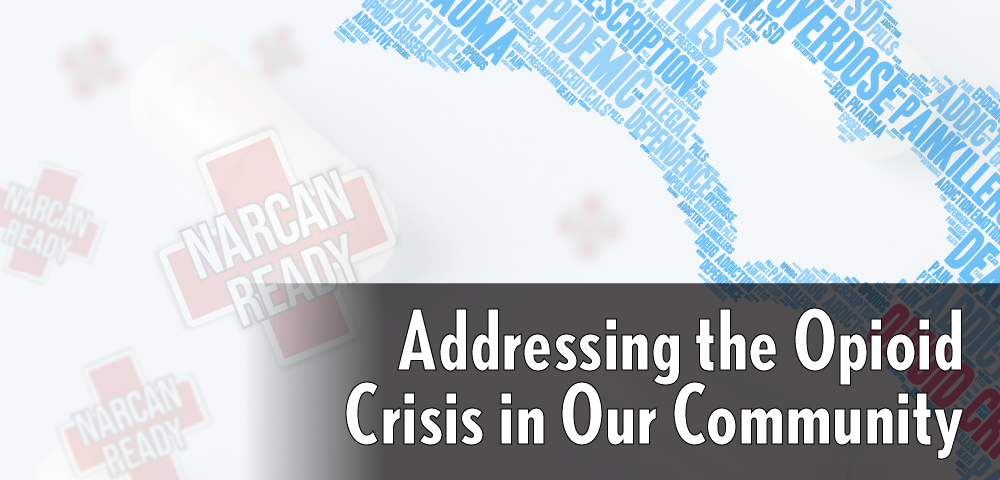
By Alana Quarles, Branch Manager, Kings Park Library
Learn how the Community Services Board and libraries are taking steps to prevent overdose.
We spoke to Marla Zometsky, Cross-System Prevention Manager with Fairfax County’s Neighborhood and Community Services (NCS), to discuss the significance of the opioid crisis in our community and how NCS and Fairfax County Public Library (FCPL) are taking steps to prevent overdose.
What does being a Cross-System Prevention Manager entail?
My role is to assist our Health and Human Service agencies to develop, coordinate and strengthen programs, policy and practices that reduce risk factors and increase protective factors for populations at risk for adverse and disproportionate outcomes. By focusing on primary prevention and promoting protective factors, we can better help people and our community deal with stressful events and increase overall health and well-being of individuals, children and families.
One way we do this is by partnering with the Community Services Board (CSB) to provide training on how to recognize the signs that someone may be experiencing an opioid overdose and how to respond using naloxone.
Can you share information on what the training entails?
When there is a crisis, we can freeze and not know what to do. In the training, participants will learn what opioids are (e.g., pain medications, heroin, fentanyl), how they work on the brain, what happens when someone may be experiencing an overdose and how to respond using naloxone (Narcan). Residents who attend the county training are also provided with free naloxone. Thus, we hope that by having naloxone and knowing how to use it, residents will be better prepared to help save a life.
Trainings are offered virtually and in-person, with weekly training sessions scheduled for community members to attend. Any group and organization can also contact the Wellness, Health Prevention and Promotion team to schedule a customized training. They also offer trainings in Spanish.
To learn more about the free Opioid Overdose and Naloxone Education course from the Wellness, Health Prevention and Promotion team with the CSB, visit bit.ly/revive-csb.
What is Naloxone?
Naloxone is a medication designed to rapidly reverse opioid overdose and it is available in three FDA-approved formulations: injectable, auto injectable and prepackaged nasal spray. Narcan is the brand name. Naloxone and Narcan are often used interchangeably when discussing and training on its use.
How does FCPL relate to the work you do?
Libraries have always been a hub for community engagement and awareness. Library staff are embedded in the community and libraries are where residents go to seek information and, often, other support assistance needs. Everyone is welcome in our public libraries, making librarians vital partners in the prevention of overdoses and helping to disseminate relevant opioid epidemic information.
This year, we offered the Opioid Overdose and Naloxone Education to all FCPL employees. Through the training, library staff learned how to recognize the signs that someone may be experiencing an overdose and how to use naloxone. Not only are the staff members lay rescuers, but they also share information with the public so that everyone can get the tools needed to help someone who may be experiencing an overdose.
What is the one thing everyone should know when addressing an overdose situation?
The previous U.S. Surgeon General, Jerome Adams, said that if we want to make a dent in the overdose epidemic, we need everyone to consider themselves a first responder, like how we look at CPR, and to carry naloxone.
Everyone has a role to play to help prevent fatal and non-fatal drug overdoses. You might be at a local park, family picnic, or entering your work or apartment building and notice someone slumped over, with pale skin, and not breathing or believe they’re deeply sleeping. By recognizing a possible overdose and providing naloxone, you could potentially save a life.
To learn more about Fairfax County’s response to the opioid crisis, information about trainings and other resources to help you learn more about the steps you can take, visit bit.ly/FFC_Opioid.

